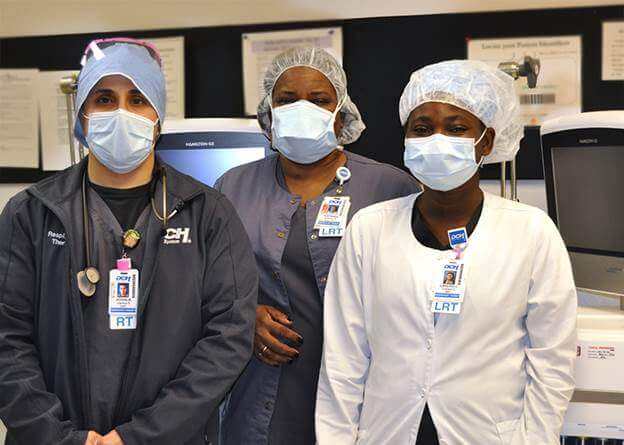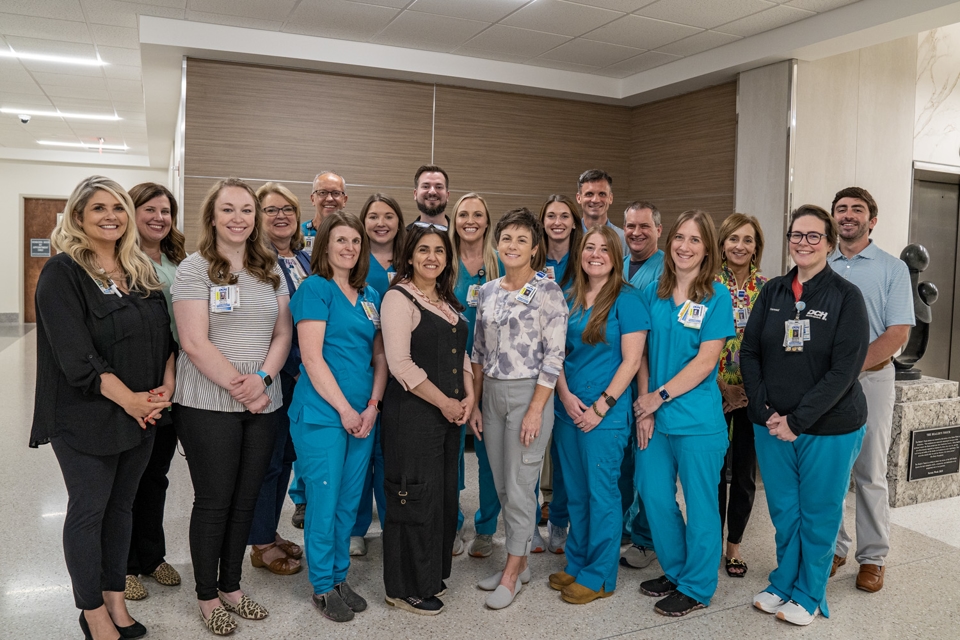Nurses and doctors are often top of mind when people think about who’s on the frontlines of treating COVID-19 patients.
But with COVID-19 known to primarily affect the respiratory system, our respiratory therapists are key players in a patient’s fight to get well. They are at the bedside for intubations, arterial blood gas tests, suctioning secretions and other procedures, all in an effort to help the patient breathe better. Three certified respiratory therapists at DCH Regional Medical Center shared their thoughts on life inside, and outside, the hospital during the virus outbreak.
While these workers wear N95 masks and other personal protective equipment (PPE) in patient care areas, they still have to pay close attention to the patient’s door before entering. That’s where signs indicate which precautions to take beyond “standard,” such as airborne and droplet. “We don’t know if they are positive or negative for COVID-19. They may have been tested but the results aren’t back yet,” Katrina Stockdale said.
“There’s a lot of unknown [with this virus]. It’s the fear of the unknown that makes you nervous,” Stockdale said. She went on to explain that whatever PPE is needed by staff is supplied by DCH.
For patients, the fear may come from simply seeing health care workers suited up in their PPE. But frequent posts on social media about the use of PPE have helped tamp down the fear, Josh Singh said. “Patients aren’t freaked out by us with all of our PPE on [when we enter the room],” he said.
At the end of the workday, Singh sheds the PPE and heads home. But once there, he follows a daily routine to protect himself and others from getting infected with the virus. As soon as he walks in from work, he removes his scrubs and throws them in a hamper separate from his other clothes. Then he takes a shower.
Cristell Carr has extra reason to be cautious at home: a 14-month-old son. “If I cough, my husband says, ‘You have to sleep on the couch.’”
Everyone has been affected by the stay-at-home orders. “You look around the town to see what’s changed,” Stockdale said. “And when you go to the grocery store, you feel like you are doing something wrong. You don’t want to be around other people because you don’t know if you have it [the virus].”
The jobs of respiratory therapists go beyond the skilled work of providing breathing treatments and the like. Sometimes they just need to be good listeners and cheerleaders. “A patient told me, ‘I got bad news,’” Carr said. A test had confirmed that the patient was positive for COVID-19. “You could see in [the person’s] face that [the person] was really sad, but I said, ‘You are in the right place to get care.’”






